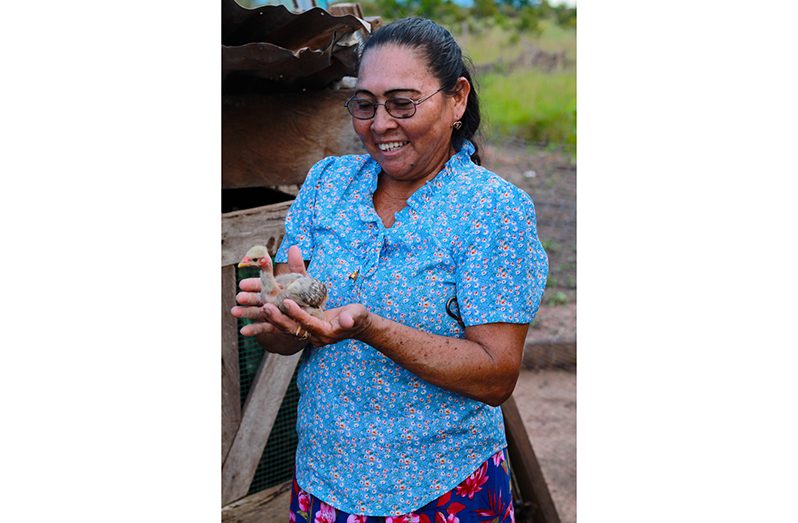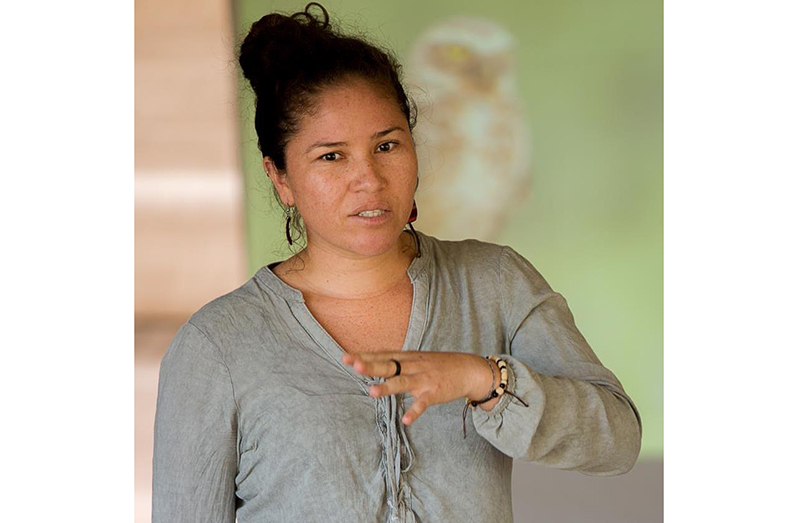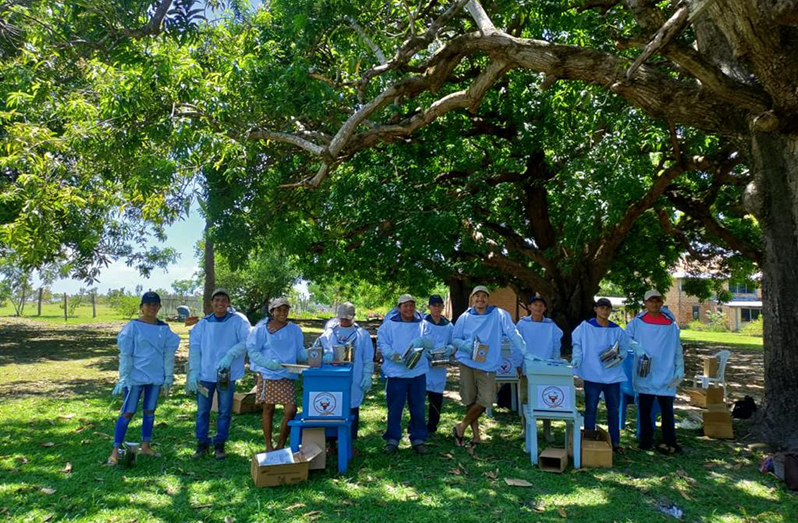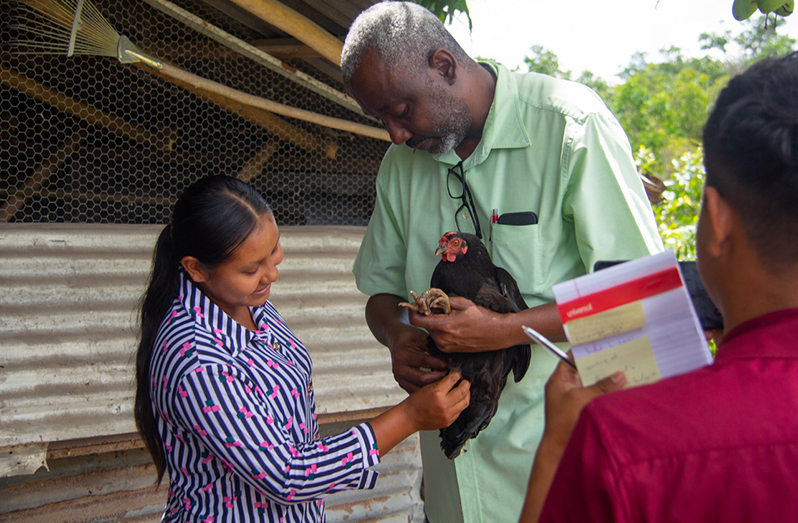– How RLPA has promoted ‘buying local’
FORMED by a group of ranchers in the early 1970s, the Rupununi Livestock Producers Association (RLPA) is the oldest non-governmental organisation in the Rupununi, which has managed to trump the dormancy that it experienced some years ago. The group has since developed into a vibrant, well-supported organisation helping scores of livestock farmers.
When Michelle Kenyon joined RLPA in 2015, she was elected treasurer, but when the last elections were held, she became the Vice President with Rebecca Faria being ‘Chair’. The management committee is usually voted in when the general meeting is held.
Anyone from across the five districts of Region Nine (Upper Takutu-Upper Essequibo) with livestock is allowed to become a member. All of the positions are voluntary.
The board of directors would meet with policymakers and other stakeholders to negotiate on behalf of the 130 members and the livestock industry.
“The main objective is to lobby, encourage, and promote improvement in the production of the livestock industry and to partner with the relevant institutions,” Kenyon told Pepperpot Magazine, adding, “Together, we have a stronger voice. If it was just a small farmer on their own trying to get support, chances are he will not be heard, but the RLPA is well recognised in the region and we have a bigger platform to reach the higher offices.”
Since the association was revitalised, its biggest support came from the Sustainable Wildlife Management Programme funded by the European Union. So for the past four years, the RLPA was identified to carry out the livestock component of the programme.
The programme looks at improving food security in the region, wildlife conservation, livelihoods, etc., and the technical and financial support from which the RLPA has benefitted has allowed the association to grow. Before such support, the RLPA had only been able to conduct the annual Rupununi Rodeo for which it has oversight.
“We were able to establish a livestock hub in the region – the first of its kind; we have established a hatchery for poultry at the rodeo site and, to date, we have six full-time staff. We also do outreaches in every quarter around the districts,” Kenyon informed regarding the achievements of the association recently.
Furthermore, it received more funding from the ‘Greater Guyana’ initiative to build on the work that was already started. “Through the Greater Guyana initiative, we have been able to open the first producer-owned hatchery and we started hatching the domestic chicks – Rhode Island Red Chicks – and our next move is to start hatching the broiler chicks. It will be cheaper for farmers and there will be a consistent supply so this should improve the local market greatly,” Kenyon shared.
Buy Local
Another major accomplishment of the RLPA was to see a decline in the amount of chicken and eggs that were being imported from Brazil. The folks in Region Nine made huge purchases because there were not many local poultry farmers.
“It’s quite a lot of money, so we were saying that if half of this can come to our local farmers it will be of much benefit. We ran a campaign called ‘Local Meat You Just Can’t Beat’ encouraging people to buy local. We tried to sell the idea that it’s healthier, fresh, the money is kept here in the Rupununi,” Kenyon recalled.
As a result, they saw a big improvement in poultry production in the region with more stores and supermarkets selling local poultry. While encouraging people to buy local, at the hub, the RLPA sell livestock products like feed, waterers and whatever else is needed for poultry and provide the technical support needed for free.
“A lot of small farmers want to start up but they don’t have money. In order for you to get loans, it’s complicated for someone in the village who doesn’t have assets, a job and documents. I hope that RLPA would grow to a point where we can help farmers start up,” Kenyon expressed.
The association recently received funding from the Hinterland Environmental Sustainable Agriculture Development Project (HESAD) through the Ministry of Agriculture to do a poultry project in five villages in the Deep South Rupununi where they will be helping farmers with a start-up. Funding was also obtained from the New Zealand government to do a small bee project where ten persons were trained in apiculture.
“With so many changes in the world, like climate change, we have to start thinking and be clever about how we will secure our food,” Kenyon posited.
















